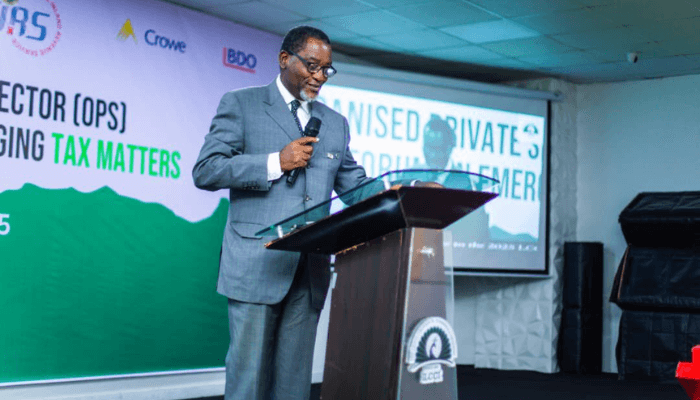Nigeria’s tax reforms risk deterring investments and compliance if authorities don’t intensify efforts in clarifying grey areas and ensuring investors get dividends in the form of social infrastructure for levies being paid, business leaders said.
Business leaders who gathered at the Lagos Chamber of Commerce and Industry-Federal Inland Revenue Service (FIRS) Stakeholders’ Forum on Tax Matters, Wednesday, said unclear rules, rising borrowing costs, and multiple levies threaten to erode investor confidence in Africa’s top crude producer as the government pushes ahead with sweeping tax reforms.
Abimbola Olashore, president of the Nigeria British Chamber of Commerce (NBCC), said businesses—particularly small and medium enterprises—remain uncertain about their obligations under the new regime set to take effect in January 2026.
“Many businesses, especially SMEs, find the provisions of the reforms rather vague,” Olashore said. He pointed to widespread confusion around turnover thresholds for income tax versus VAT, urging FIRS to expand outreach through simplified guides and workshops to ease compliance.
The Chamber warned that the removal of foreign loan interest exemptions could significantly dampen long-term foreign investment. “It will inevitably raise the overall cost of borrowing,” Olashore said, noting that the change could deter inflows into capital-intensive sectors like energy, infrastructure, and manufacturing.
Uncertainty around the treatment of chargeable gains on indirect share transfers is also raising concerns for cross-border investors, he said.
Read also: The tax reforms gamble – winners, losers, and unintended consequences
Multiple taxation remains another drag on business, particularly in logistics, where operators face repeated levies from different agencies on the same delivery routes. The NBCC urged the government to establish a centralized digital tax registry to streamline collections and reduce duplication.
Olashore also flagged compliance burdens created by the short transition period. Although the government promised six months for adjustment, the final gazetted laws were only released in September, leaving businesses scrambling to meet the Jan. 1 deadline. New reporting requirements and VAT fiscalisation may force SMEs to spend more on software, staff, and compliance systems.
The Chamber called for reforms that expand the tax net without overburdening compliant firms, protect SMEs, and offer predictable policies. “Revenue generation and economic growth should not be opposing goals, but complementary objectives,” Olashore said.
In his address, the president of LCCI, Gabriel Idahosa, represented by Leye Kupoluyi, deputy vice president of the Chamber, said the tax reforms were necessary to spur growth and attract investment, stressing that they help investors in the allocation of capital and resources.
He however urged the government to ensure tax payments lead to improved welfare conditions. “Taxation works best when taxpayers see the value of what is paid for. When taxpayers see that their taxes lead to improved welfare and social services, compliance becomes seamless.”
Zach Adedeji, executive chairman of FIRS, represented by Stella Okahbuzor, director, Oil and Gas, said the tax reforms were necessary as they seek to overhaul the entire colonial tax system that does not conform to the present realities.
Adedeji highlighted the importance of the new laws, some of which are the provisions for the exemption of taxes for low-income owners, the scrapping of multiple taxation and the introduction of digitized procedures of filing.

